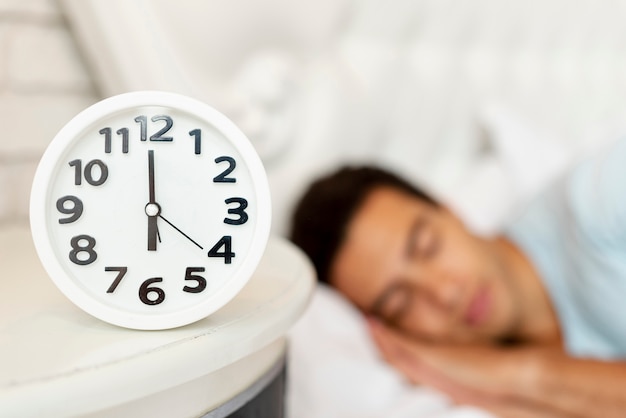Hi, I’m Alex, and if you’re like me, you know how stress can creep into every part of your life, sometimes without you even noticing it. From juggling work and family to managing unexpected life challenges, feeling overwhelmed is easy. I used to think stress was just a part of life that we had to deal with, but I’ve learned that stress reduction techniques are effective and necessary for living a happier, healthier life. Today, I’m sharing some of the best strategies that helped me reduce stress and find calmer daily. Let’s dive into it!
Common Questions About Stress Reduction
When I first started researching how to manage my stress, I had so many questions. You might be wondering the same things:
- What are the quickest ways to reduce stress?
- How do I manage stress when I don’t have much time?
- What techniques work for lasting stress relief?
Through trial and error (and a lot of Googling!), I’ve found a handful of strategies that have worked wonders for me. I’m sharing these with the hope they’ll help you, too.
1. Practice Mindful Breathing

When stress starts to build, mindful breathing is one of the simplest and most powerful techniques. I know it sounds too easy to be true, but it works! Whenever I feel tense, I close my eyes and focus on my breath for a few minutes. Slowly inhaling through my nose, holding it for a few seconds, and then exhaling through my mouth instantly makes me feel more grounded.
Pro Tip: Try the 4-7-8 breathing technique: Inhale for 4 seconds, hold for 7, and exhale for 8. Repeat it 4 times, and I promise you’ll feel more relaxed.
The great thing about mindful breathing is you can do it anywhere—at your desk, in the car, or even standing in line at the grocery store.
2. Get Moving with Quick Exercise
I’m not talking about a full workout session (though that’s great too). Sometimes, just a quick walk or a few minutes of stretching can significantly affect your stress levels. I’ve noticed that when I’m sitting for too long, I feel more anxious, so I make it a point to get up and move around every hour.
Fast Stress Buster: Take a 10-minute walk outside. Being in nature, even for a short time, has been proven to lower stress and improve your mood.
Exercise releases endorphins, which are your brain’s natural mood boosters. Even small bursts of movement can help you feel more energized and less stressed throughout the day.
3. Practice Gratitude
It might sound cliché, but practising gratitude has been a game-changer. When stress is high, it’s easy to focus on what’s going wrong, but taking a moment to reflect on what’s going right can shift your mindset. Every morning, I write down three things I’m grateful for, no matter how small they seem.
Gratitude Hack: Keep a gratitude journal on your nightstand and write down a few positive things before bed. You’ll fall asleep with a more peaceful mind and wake up feeling refreshed.
Gratitude helps you gain perspective and reminds you of the good in your life, even when stress feels overwhelming.
4. Break Tasks Into Small Steps
One thing that stressed me out was having a long list of things to do and no idea where to start. I’ve found that breaking tasks into smaller, manageable steps makes a difference. Instead of getting overwhelmed by the whole project, I focus on the next small step I need to take.
Productivity Tip: Use the Pomodoro technique—work for 25 minutes, then take a 5-minute break. After four cycles, take a longer break. This method keeps you focused and prevents burnout.
Breaking tasks into smaller pieces makes them less daunting and more achievable, helping to reduce stress.
5. Connect with Friends or Family
Sometimes, when stress builds up, you only need a good conversation with a friend or family member. I can’t count the times I’ve felt better after talking things through with someone who gets it. Connecting with others can relieve stress, whether it’s a phone call, a video chat, or an in-person coffee date.
Social Boost: Make it a habit to check in with a loved one regularly, even when you’re busy. You’ll be surprised at how much lighter you feel after a simple chat.
We’re social creatures, and even if you’re more introverted like me, a little human connection can greatly reduce stress.
6. Try Guided Meditation
Meditation used to seem intimidating. I thought I needed to sit in silence for hours to get the benefits. But once I discovered guided meditation, everything changed. It’s a simple and effective way to clear your mind and calm your body. I started with just five minutes a day, and I could feel the difference almost immediately.
Beginner Tip: Try using apps like Headspace or Calm. They offer short, guided meditations perfect for beginners, focusing on relaxation, stress reduction, and mindfulness.
Meditation teaches your mind to focus on the present moment, which can help break the cycle of stress and overthinking.
7. Prioritise Sleep

It’s impossible to talk about stress reduction without mentioning sleep. I used to push through late nights, thinking I could catch up on rest later, but I quickly realized that lack of sleep only worsened my stress. Prioritizing 7-8 hours of sleep each night has greatly impacted my mood, energy levels, and overall stress.
Sleep Hygiene Tips: Create a calming bedtime routine. I turn off screens an hour before bed, dim the lights, and read a book or listen to soft music to wind down.
When well-rested, you’re better equipped to handle the day’s challenges.
The Benefits of Reducing Stress
Reducing stress isn’t just about feeling better in the moment—it has lasting benefits for your overall well-being. Here are a few ways my life has improved since I started focusing on stress reduction:
- Better Relationships: I’m more present and patient with the people I care about when I’m less stressed.
- Improved Focus: Lowering my stress levels has helped me concentrate better at work and tackle tasks more efficiently.
- More Energy: Reducing stress has given me more energy to enjoy life, from hobbies to spending time with loved ones.
The journey to reducing stress is personal, but the benefits are universal. It’s not about eliminating stress completely (that’s unrealistic!), but finding ways to manage it so it doesn’t control your life.
Start Your Stress Reduction Journey Today
If stress is something you’ve been struggling with, I hope these tips help you as much as they’ve helped me. Whether it’s trying mindful breathing, prioritizing sleep, or connecting with loved ones, these small changes can make a big impact. Stress reduction is a process, and it’s okay to take it one step at a time.
What stress-busting techniques have worked for you? I’d love to hear your thoughts in the comments below. Let’s share and support each other on the journey to a calmer, more balanced life!


